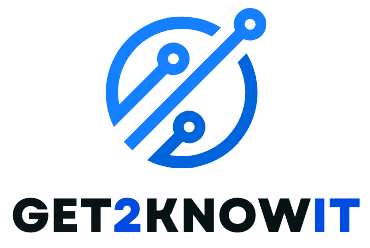Customer Relationship Management (CRM) systems hold a crucial role in improving customer interactions, streamlining operations, and fostering growth. Within the spectrum of CRM solutions, Microsoft Dynamics and Salesforce stand out as industry leaders. In this in-depth blog post, we will conduct a comprehensive comparison of Microsoft Dynamics vs Salesforce, offering expert insights. We will carefully examine various factors that businesses should consider before making their CRM selection.
CRM systems have brought about a transformative shift in how businesses handle customer interactions, sales processes, and marketing endeavors. Microsoft Dynamics and Salesforce occupy prominent positions in this realm, providing an extensive toolkit to help businesses nurture robust customer relationships and boost revenue. Leveraging our profound expertise in this domain, our aim is to furnish you with an exhaustive comprehension of the inherent merits and limitations present within both platforms. Armed with this insight, you will be empowered to arrive at a judicious and meticulously tailored decision that aligns seamlessly with your unique business imperatives.
Background and Overview of Microsoft Dynamics
Microsoft Dynamics is a suite of business applications that encompass various modules such as Dynamics 365 Sales, Marketing, Customer Service, and more. The distinctive advantage of Microsoft Dynamics lies in its seamless integration with other Microsoft products and services. This integration ensures a familiar user experience for those already accustomed to tools like Microsoft Office, Outlook, and SharePoint. For businesses entrenched in the Microsoft ecosystem, Dynamics presents an enticing opportunity to consolidate tools and streamline operations. From manufacturing to finance, Microsoft Dynamics caters to a wide array of industries, offering industry-specific solutions that can be tailored to unique business requirements.

Background and Overview of Salesforce
Salesforce has established a formidable standing with its cloud-based CRM solutions, encompassing Sales Cloud, Service Cloud, and Marketing Cloud. As a pioneer in the realm of cloud technology, Salesforce prioritizes innovation and scalability as core tenets. The interface is thoughtfully crafted to deliver a user-friendly and intuitive experience, rendering it a preferred choice for businesses spanning the entire spectrum, from burgeoning startups to well-established enterprises. Further bolstering its offering, Salesforce nurtures a dynamic ecosystem hosting a diverse marketplace of third-party applications and integrations. This furnishes businesses with the flexibility to fine-tune the platform’s capabilities meticulously to harmonize with their distinct requirements.

Feature Comparison of Microsoft Dynamics vs. Salesforce
User Interface and Experience
Both Microsoft Dynamics and Salesforce offer user-friendly interfaces, but the choice often depends on the familiarity of your team. Microsoft Dynamics’ interface aligns with other Microsoft products, providing a seamless experience for users already comfortable with these tools. On the other hand, Salesforce boasts a modern, intuitive design that facilitates quick adoption.
Sales and Marketing Capabilities
In terms of sales and marketing, Microsoft Dynamics excels in lead management and opportunity tracking, leveraging its integration with Microsoft Outlook for enhanced communication. Salesforce offers robust automation capabilities, making it an excellent choice for email marketing, campaign management, and forecasting.
Customer Service and Support
For customer service and support, both platforms offer case management and ticketing solutions. Microsoft Dynamics emphasizes omnichannel support, allowing businesses to engage customers across various channels seamlessly. Salesforce’s Service Cloud is praised for its comprehensive support features and advanced AI-powered solutions.
Integration and Compatibility
Both platforms excel in integration capabilities. Microsoft Dynamics seamlessly integrates with other Microsoft products, enhancing collaboration and data sharing. Salesforce’s extensive AppExchange marketplace provides a wide array of integrations, enabling businesses to connect their CRM with a variety of other tools.
Analytics and Reporting
Both platforms offer robust analytics and reporting features, allowing businesses to gain insights into their operations. Microsoft Dynamics leverages Power BI for data visualization, while Salesforce offers customizable dashboards and real-time reporting for informed decision-making.
Customization and Flexibility
Microsoft Dynamics and Salesforce provide extensive customization options. Dynamics allows businesses to tailor workflows and processes according to their needs. Salesforce offers declarative customization through clicks, not code, making it accessible to a wider audience. For more complex customization, both platforms allow development through coding.
Pricing Factors
Microsoft Dynamics’ pricing varies based on the specific applications required and the number of users. It offers a range of plans and licensing options to accommodate different budgets. Salesforce follows a similar model, with pricing varying based on the chosen features and user licenses. As businesses scale, it’s essential to consider how pricing will evolve.
Integration with Existing Infrastructure
Businesses often have existing software infrastructures in place. Microsoft Dynamics seamlessly integrates with Microsoft products such as Office 365 and SharePoint. This integration can streamline workflows and enhance collaboration. Salesforce, being cloud-based, can fit into a variety of software stacks, making it suitable for businesses with diverse systems.
Industry-Specific Considerations
Microsoft Dynamics appeals to industries where Microsoft tools are already deeply integrated into daily operations. Its compatibility with tools like Excel and Outlook is a significant advantage. Salesforce, with its cloud-centric approach, is favored by industries that prioritize agility and innovation, such as technology and retail.
Customer Support and Resources
Both Microsoft and Salesforce offer comprehensive customer support and resources. Microsoft provides robust documentation, community forums, and direct support options. Salesforce offers a knowledge base, community forums, and various support plans to cater to different levels of assistance.
Security and Compliance
Security is a top concern for businesses handling sensitive customer data. Both platforms adhere to industry standards and regulations. Microsoft Dynamics leverages the security features of the broader Microsoft ecosystem. Salesforce provides robust security measures and compliance certifications to ensure data protection.
Real-world User Experiences
To provide real-world insights, we’ve gathered testimonials from businesses using both Microsoft Dynamics and Salesforce. Users of Microsoft Dynamics praise its integration with familiar Microsoft tools, while Salesforce users highlight its user-friendly interface and scalability.
Future Development and Trends
Both platforms are actively evolving to meet the changing needs of businesses. Microsoft Dynamics is investing in AI and automation to enhance user experiences further. Salesforce continues to innovate in cloud technology and AI, aligning with the industry’s growing demands.
Conclusion
Salesforce’s reputation is widely acknowledged for its cloud-based CRM solutions, constituting Sales Cloud, Service Cloud, and Marketing Cloud. Within the domain of cloud technology, Salesforce leads as an innovator, prioritizing both innovation and scalability. The platform’s interface is thoughtfully crafted for user-friendliness and intuitive operation, rendering it a preferred selection for enterprises across the spectrum, encompassing startups to large corporations. In addition, Salesforce nurtures a thriving ecosystem boasting an extensive repertoire of third-party applications and integrations. This diverse marketplace equips businesses with the capability to finely tailor the platform’s functionalities to impeccably align with their distinctive prerequisites and preferences.




